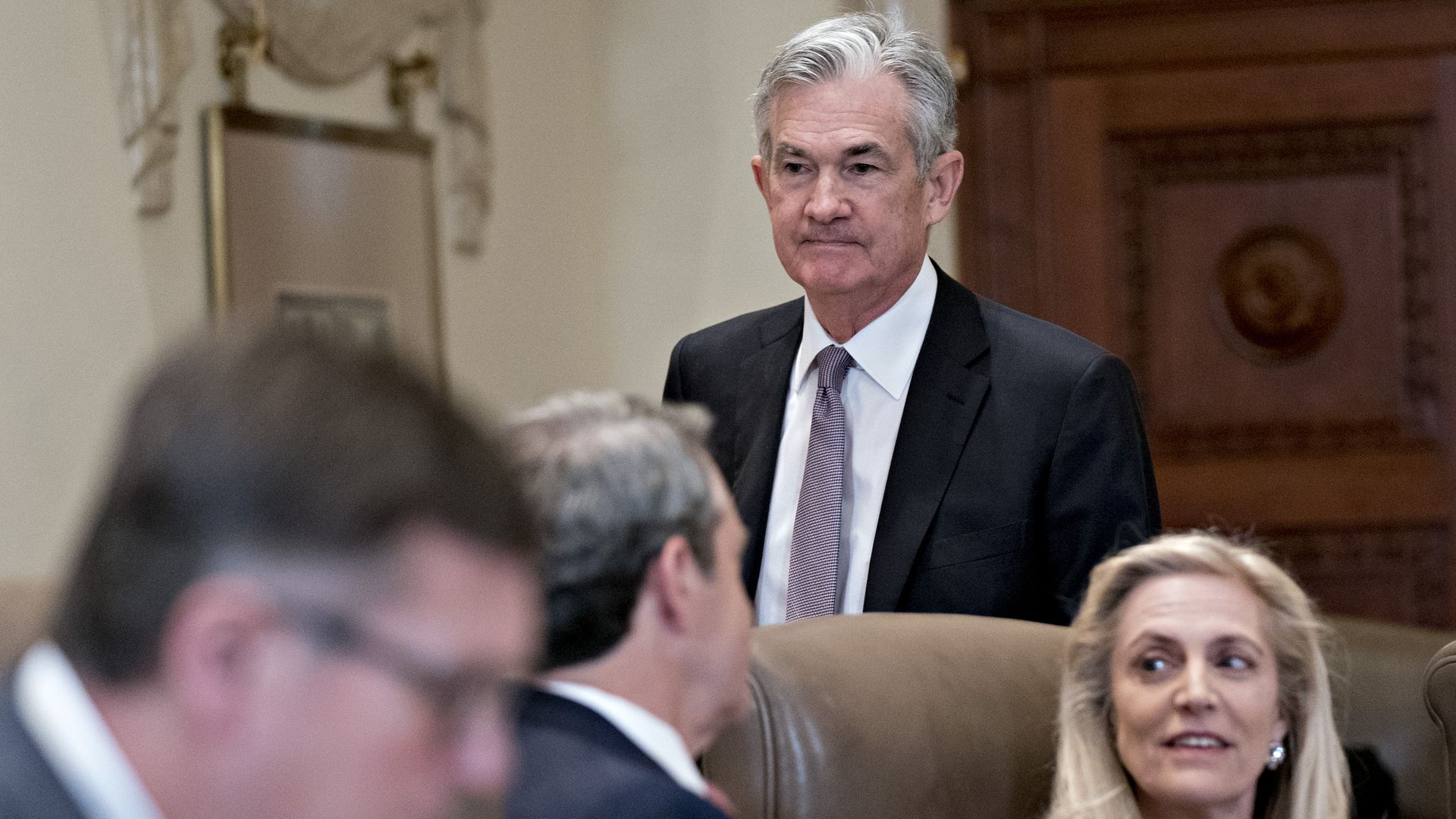Biden's Fed calculus
Add Axios as your preferred source to
see more of our stories on Google.

Federal Reserve Chairman Jay Powell and Governor Lael Brainard are seen during a 2019 Fed meeting. Photo: Andrew Harrer/Bloomberg via Getty Images
President Biden has more than economics on his mind as he weighs his choice to lead the Federal Reserve: His pick will impact inflation, face the cruel judgment of financial markets and somehow need to find 50 votes in deeply divided Washington.
Why it matters: The head of the U.S. central bank is vested with vast powers that determine how quickly to heat — or cool — the economy. The results will be pivotal to Democrats' midterm chances next year, and Biden's potential re-election campaign in 2024.
- While the president publicly insists inflation is largely temporary, his aides are privately alarmed by the broader effects of supply-chain disruption.
- That includes all bad — and visible — problems for everyday Americans, from higher prices and longer product delays to empty store shelves.
Driving the news: Biden has been conducting a deliberative process.
- He met Thursday with the current chair, Jay Powell, a Republican appointed by President Trump, as well as Lael Brainard.
- She's a former Obama Treasury official who’s currently a Fed governor.
- Biden said last week he'd announce his choice for chair and other Fed nominees “fairly quickly.”
The case for Powell: Markets know, like and trust the former private equity executive.
- If he’s reappointed, there won’t be a revolt from Wall Street as the White House looks to pass Biden’s $1.75 trillion Build Back Better agenda, fund the government and raise the debt ceiling.
- Markets also may allow Powell to let inflation run a little bit hotter before demanding the Fed act.
- Powell has some Democratic support, including the backing of Sen. Jon Tester (D-Mont.), an influential member of the Senate Banking Committee. Powell was confirmed in 2018 by a lopsided vote of 84-13.
- Powell worked adeptly — and across the aisle — in finding new tools to fight the economic fallout of the pandemic, and he’s moved toward a more progressive position on climate change.
Some Republicans are vowing to block Brainard, calling her too liberal, and hinting at an ugly confirmation fight.
The case for Brainard: She’s an actual economist and actual Democrat, and is more aligned with Biden on a range of fiscal, monetary and regulatory issues.
- Sen. Elizabeth Warren (D-Mass.) has called Powell — to his face — a “dangerous man.” It’s unclear if the White House wants to go to war with her over the Fed.
- Brainard has advocated for the Fed to do more about climate change and has hinted that big changes are coming.
- Democratic presidents deserve to pick their Fed chairs, and shouldn’t be bullied to keep a Republican holdover. Just because Presidents Clinton and Obama reappointed Republicans doesn’t mean Biden must do the same.
- While current Treasury Secretary Janet Yellen was the first woman to serve as Fed chair, and Brainard wouldn't be a "first," the White House still puts a big premium on gender diversity.
Between the lines: Yellen has privately urged the White House to reappoint Powell and publicly praised him as "experienced and credible” last week.
- But she was also careful to tell Reuters "there are other candidates too, who I think would be similarly perceived."
- Given Warren’s vocal opposition to him, the president may have to choose between his Treasury secretary and a powerful progressive senator.
- Ten months into his presidency, Biden has yet to buck Warren on a financial personnel decision.
